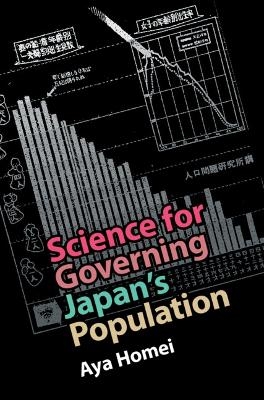
Science for Governing Japan's Population
Seiten
2022
Cambridge University Press (Verlag)
978-1-009-18683-4 (ISBN)
Cambridge University Press (Verlag)
978-1-009-18683-4 (ISBN)
This major new study highlights the role of population sciences in turning Japan into a modern sovereign nation. Based on a range of local and state archives in Japan and in the United States, Aya Homei unpacks assumptions about the links between population, sovereignty, and science.
Twenty-first-century Japan is known for the world's most aged population. Faced with this challenge, Japan has been a pioneer in using science to find ways of managing a declining birth rate. Science for Governing Japan's Population considers the question of why these population phenomena have been seen as problematic. What roles have population experts played in turning this demographic trend into a government concern? Aya Homei examines the medico-scientific fields around the notion of population that developed in Japan from the 1860s to the 1960s, analyzing the role of the population experts in the government's effort to manage its population. She argues that the formation of population sciences in modern Japan had a symbiotic relationship with the development of the neologism, 'population' (jinkō), and with the transformation of Japan into a modern sovereign power. Through this history, Homei unpacks assumptions about links between population, sovereignty, and science. This title is also available as Open Access.
Twenty-first-century Japan is known for the world's most aged population. Faced with this challenge, Japan has been a pioneer in using science to find ways of managing a declining birth rate. Science for Governing Japan's Population considers the question of why these population phenomena have been seen as problematic. What roles have population experts played in turning this demographic trend into a government concern? Aya Homei examines the medico-scientific fields around the notion of population that developed in Japan from the 1860s to the 1960s, analyzing the role of the population experts in the government's effort to manage its population. She argues that the formation of population sciences in modern Japan had a symbiotic relationship with the development of the neologism, 'population' (jinkō), and with the transformation of Japan into a modern sovereign power. Through this history, Homei unpacks assumptions about links between population, sovereignty, and science. This title is also available as Open Access.
Aya Homei is a Lecturer in Japanese Studies at University of Manchester.
Introduction; 1. Population statistics: between building a modern state and governing imperial subjects; 2. Medical midwifery and vital statistics: for the health of Japan's population; 3. Policy experts: tackling Japan's 'population problems'; 4. National land planning: distributing populations for the wartime nation-state-empire; 5. Birth control survey: visualizing a productive Japanese population for postwar reconstruction; 6. Public health demography: local, national, and transnational efforts to govern lower-class populations; Conclusion.
| Erscheinungsdatum | 08.11.2022 |
|---|---|
| Reihe/Serie | Science in History |
| Zusatzinfo | Worked examples or Exercises |
| Verlagsort | Cambridge |
| Sprache | englisch |
| Maße | 159 x 235 mm |
| Gewicht | 610 g |
| Themenwelt | Geschichte ► Teilgebiete der Geschichte ► Technikgeschichte |
| ISBN-10 | 1-009-18683-3 / 1009186833 |
| ISBN-13 | 978-1-009-18683-4 / 9781009186834 |
| Zustand | Neuware |
| Haben Sie eine Frage zum Produkt? |
Mehr entdecken
aus dem Bereich
aus dem Bereich
Buch | Softcover (2024)
Lehmanns Media (Verlag)
CHF 27,90
Digitalisierung neu denken für eine gerechte Gesellschaft
Buch | Hardcover (2023)
Quadriga (Verlag)
CHF 27,95
Vom Perceptron zum Deep Learning
Buch | Softcover (2022)
Springer Vieweg (Verlag)
CHF 27,95


